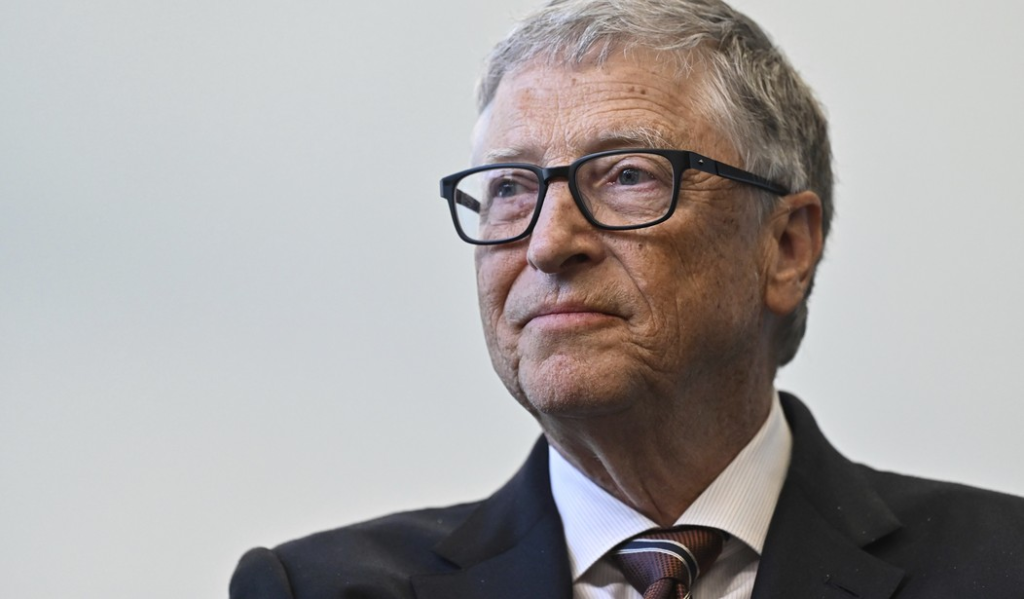
Bill Gates AI predictions have stirred considerable discussion in both tech circles and beyond, as the Microsoft co-founder shares his insights on this transformative technology. During his recent memoir launch, Gates elaborated on his views regarding artificial intelligence, acknowledging its potential while also expressing concerns about its rapid evolution. As a thought leader and philanthropist, Gates delves into the impact of technology not just on industry, but on society at large, emphasizing the critical need for responsible development. His reflections highlight a deep curiosity in learning, rooted in his experiences as a young programmer and his achievements with Microsoft. As he continues to engage with pressing global issues, Gates reminds us that while innovation is essential, it comes with responsibilities that we must not overlook.
In the realm of technological foresight, Bill Gates has made noteworthy statements about the future trajectory of intelligent systems. The former CEO of Microsoft reflects on the dual nature of progress in artificial intelligence, which embodies both revolutionary opportunities and significant challenges. As he shares insights from his life’s work, Gates also invites a broader conversation about the ethical considerations that accompany rapid advancements in tech. His emphasis on ongoing education and adaptability underscores the importance of maintaining a balance between innovation and humanity’s welfare. As we navigate this brave new world, Gates’ predictions serve as a powerful reminder of the impact that advanced technologies can have on our lives and the need for responsible stewardship.
The Power of Curiosity in Technology Innovation
Curiosity is often the bedrock of technological innovation, as exemplified by figures like Bill Gates. Throughout the journey of founding Microsoft, Gates emphasizes how a natural inclination for exploration led him to delve into programming and computer science, despite the odds. In his discussions and his memoir, “Source Code,” he shares anecdotes from his childhood, highlighting how curiosity drove his involvement in the ever-evolving world of technology. Encouraging young minds to embrace their curiosity, Gates believes that trying out new things can lead to ground-breaking discoveries and a deeper understanding of technology’s impact on society.
Moreover, curiosity in learning fuels not just personal growth but spurs substantial advancements in technology as a whole. Gates advocates for educational systems that allow students to explore, experiment, and sometimes fail, a sentiment echoed throughout his philanthropy efforts in education. By nurturing curiosity, he suggests, we can cultivate the next generation of innovators who will push the boundaries of what technology can achieve. This ethos runs parallel to his predictions about the future of tech, where those who explore the unknown will lead the way in solving critical global issues.
Bill Gates’ Perspective on AI Concerns
During recent discussions about artificial intelligence, Bill Gates has articulated his concerns and predictions regarding the future of this transformative technology. While he expresses optimism about AI’s potential to alleviate challenges in sectors such as healthcare and education, he also acknowledges the fears surrounding its rapid development. In his memoir, Gates delves into how the promise of AI aligns with his earlier experiences in tech, where the focus was on leveraging tools to improve lives rather than on the potential for misuse. This balance between potential and peril is crucial in understanding the complex role of AI in today’s society.
Gates’ reflections on AI also resonate with broader societal concerns about how technology is changing our interactions and reducing the complexity of human connection. He calls for a mindful approach to AI’s integration into daily life, suggesting that while innovation is paramount, it must be tempered with caution. The lessons from his experiences at Microsoft and his observations about young people’s relationships with technology inform his views. Gates cautions that as we embrace these powerful tools, it is essential to protect against unintended consequences while striving for progress.
Tracing the Impact of Technology Through Bill Gates’ Memoir
In ‘Source Code,’ Bill Gates reflects on his life journey, from his childhood to becoming the Microsoft co-founder, providing insights into the impact of technology on personal and societal growth. He meticulously traces back how his early experiences shaped his understanding of technology’s potential and challenges. This memoir serves as a testament to the lessons learned throughout years of navigating the intersection of innovation and responsibility. Gates illustrates how the rise of personal computing paved the way for transformative changes in how we live and work today.
As Gates narrates his beginnings, he intertwines stories of technological breakthroughs with deeply personal experiences, emphasizing the responsibility that comes with innovation. The memoir captures not only the evolution of Microsoft but also the philosophy driving Gates’ philanthropic ventures. He underscores the need to harness technology responsibly, aiming to strengthen its positive impact on global issues like poverty and education. Gates’ narrative is not just about his achievements but also a call for continuous engagement with the ethical dimensions of technology.
Building a Legacy: Microsoft and Beyond
Bill Gates’ legacy is irrevocably tied to Microsoft, the tech giant he co-founded, which transformed the computing landscape. Seeds of innovation planted during his early programming days blossomed into one of the most influential companies in history. In ‘Source Code,’ Gates recounts the challenges and triumphs of building a corporation that reshaped how people interact with technology. The story goes beyond mere business; it reflects a cultural shift towards digital literacy and accessibility.
However, Gates’ legacy extends far beyond the realm of software and productivity tools. Since stepping down from Microsoft, he has redirected his focus towards solving global issues through the Bill & Melinda Gates Foundation. His commitment to enhancing education, healthcare, and agricultural productivity showcases the multifaceted impact of technology in various fields. Gates’ story exemplifies how a single vision can catalyze changes that resonate across generations, urging future leaders to blend entrepreneurial spirit with a commitment to societal betterment.
Reflections on Educational Systems and Technology
Throughout his career, Gates has consistently advocated for educational reforms that integrate technology effectively. His experience as a student and later as a business leader informs his perspective on the importance of adapting educational systems to leverage technological advancements. In ‘Source Code,’ he highlights the need for critical thinking and hands-on learning experiences that prepare students for the rapidly evolving job market.
Moreover, Gates stresses the necessity of promoting digital literacy from a young age, believing it equips future generations to navigate a technology-centric world proficiently. By investing in education that fosters both curiosity and technical skills, Gates envisions a future where young people are not only consumers of technology but also innovators and leaders. His insights advocate for a holistic approach where technology enhances learning, enabling students to thrive in both academic and professional environments.
The Evolution of Personal Computing: A Historical Perspective
Bill Gates’ journey through the world of personal computing is deeply entwined with the evolution of technology itself. From the early days of Microsoft to the present, Gates’ experiences reflect the rapid shifts in computational capabilities and software applications. In ‘Source Code,’ he provides a historical context to the innovations that have emerged, painting a vivid picture of a world where technology continues to redefine boundaries.
As technology matures, Gates notes that the landscape of personal computing has become more complex, with the emergence of mobile devices and cloud computing further changing how people interact with information. He emphasizes the importance of adapting to these changes, advocating for ongoing learning and adaptation to harness technology’s full potential. This reflection not only serves as a lesson for tech enthusiasts but also highlights the importance of historical context in understanding the trajectory of technology.
Nurturing Young Innovators: Gates’ Vision for the Future
As a visionary, Bill Gates is deeply invested in cultivating young minds capable of driving the next wave of technological innovation. He believes that fostering a culture of exploration and critical thinking in educational environments is essential for nurturing the innovators of tomorrow. In his discussions, including those surrounding his memoir ‘Source Code,’ Gates emphasizes the importance of encouraging young people to pursue their interests passionately, thereby igniting their creativity and potential.
Gates’ commitment to education is reflected in his philanthropic efforts, such as the Gates Scholarship, which aims to support talented students from low-income families. By investing in education, Gates envisions a future where access to technology and knowledge are democratized. He stresses that the potential for innovation lies within the youth, and by providing them with the right tools and opportunities, we can prepare them to tackle the challenges of the future head-on.
Balancing Technology and Life: Gates’ Personal Insights
In his memoir, Bill Gates candidly shares insights into maintaining a balance between professional ambitions and personal life in the tech industry. As a leading figure in one of the most impactful tech enterprises, Gates reflects on the importance of finding harmony amid the fast-paced nature of technology. He acknowledges that while innovation is exciting, it is crucial to prioritize well-being and personal connections.
Gates’ experiences offer valuable lessons for current and aspiring tech leaders about the significance of mindfulness and balance. He describes his approach to technology use, particularly concerning his children’s upbringing in a world dominated by digital interaction. By setting limits, he advocates for a balanced, thoughtful approach to technology, encouraging individuals to ensure that their digital lives do not overshadow critical personal connections.
Addressing Ethical Challenges in Technology Development
As technology continues to advance, the ethical implications of these innovations grow increasingly complex. Bill Gates, in his reflections on artificial intelligence and its uses, emphasizes the importance of addressing these ethical challenges proactively. He acknowledges that the same technology that drives progress can also lead to unintended consequences if not handled responsibly. In his memoir, he discusses the imperative for developers and entrepreneurs to consider the societal impact of their creations.
Gates calls for a collective responsibility among tech leaders to navigate these ethical dilemmas thoughtfully. By fostering discussions around the ethics of technology, he believes that the industry can cultivate a culture of accountability and transparency. His perspective serves as a reminder that innovations should ultimately benefit society while minimizing risks associated with misuse, ensuring that technology remains a tool for good.
Frequently Asked Questions
What are Bill Gates’ predictions regarding artificial intelligence according to his memoir?
In his memoir ‘Source Code’, Bill Gates shares predictions on artificial intelligence, forecasting that AI will bring significant advancements in various fields such as medicine and education. He highlights the potential for ‘free intelligence’ from AI to address shortages in critical areas. However, he also acknowledges some concerns about the rapid development of technology, describing it as ‘a little bit scary’.
How does Bill Gates view the impact of technology on society in his memoir?
Bill Gates reflects on the impact of technology throughout his memoir ‘Source Code’, expressing a sense of nostalgia for the early techno-optimism during the days of Microsoft. He emphasizes the beauty of mathematical solutions and the potential for technology to improve lives, while also addressing the challenges and concerns that arise from technology’s integration into daily life.
What insights does Bill Gates provide about curiosity and learning in his book?
In ‘Source Code’, Bill Gates emphasizes the importance of curiosity in learning and encourages readers to take risks and explore new ideas. He credits his parents for instilling these values, which fueled his passion for technology and innovation as the Microsoft co-founder. Gates believes that fostering curiosity in children leads to creativity and problem-solving skills essential for future advancements.
What concerns does Bill Gates express about artificial intelligence?
Bill Gates acknowledges several concerns regarding artificial intelligence, as discussed in his memoir ‘Source Code’. He points out the speed of AI development as a significant issue, describing it as ‘a little bit scary’. Gates emphasizes the importance of addressing these concerns while harnessing AI’s potential to enhance various sectors, including healthcare and education.
Can you summarize Bill Gates’ views on the evolution of technology and artificial intelligence?
In ‘Source Code’, Bill Gates discusses the evolution of technology as a double-edged sword. He maintains optimism about advancements in artificial intelligence, predicting benefits for industries like medicine and education. However, he also expresses concerns over its rapid advancement and the implications it holds for society, illustrating the need for a careful approach to its integration.
What does Bill Gates believe about the future of AI in terms of education and healthcare?
Bill Gates predicts that artificial intelligence will significantly benefit education and healthcare in the future. He states that AI’s ‘free intelligence’ can help alleviate shortages in these sectors, enhancing productivity and accessibility. His views reflect a hopeful perspective on how technology can solve pressing societal issues while also acknowledging potential risks.
| Key Point | Details |
|---|---|
| Bill Gates’ Background | Gates reflects on his childhood and unique experiences that shaped his worldview and success. |
| Release of ‘Source Code’ | Gates discusses his memoir which covers his early life, the founding of Microsoft, and his philosophy on curiosity. |
| Impact of Personal Experiences | Gates attributes much of his success to his parents’ encouragement and the opportunities provided by his education. |
| Predictions on AI | Gates acknowledges both the potential benefits and the risks associated with the fast advancement of AI technology. |
Summary
Bill Gates AI predictions reflect his deep understanding of technology and its implications for the future. In a recent discussion, Gates shared insights from his memoir ‘Source Code’ while engaging with students about the evolving landscape of technology, particularly artificial intelligence. He expressed optimism about AI’s ability to address crucial shortages in various fields, yet he also recognized the fears associated with its rapid development, calling it ‘a little bit scary.’ This balanced perspective highlights Gates’ commitment to advancing innovation while addressing the ethical concerns that accompany such powerful tools.


